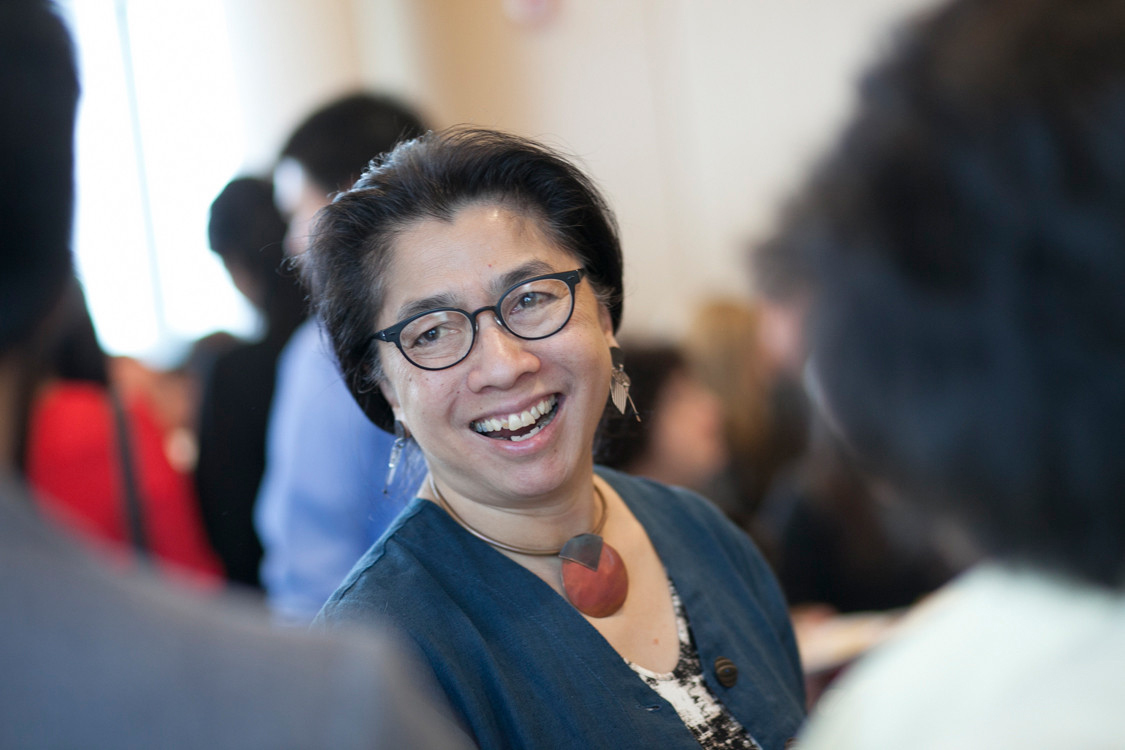Shelley Wong reflects on time, race, knowledge
By Linda B. Glaser

Time, says Shelley Wong, “is socially constructed, continually made and remade in culturally specific ways.”
Wong’s current book project focuses on race, time and narrative in Asian-American and African-American literature. She’s examining “emblematic” stories of what race has to do with time. She looks, for example, at how different people experience time and at how ideas of time have political meanings embedded in them – that is, at a politics of time.
For example, underlying the idea of evolution is a developmental time scheme where the further along you are on the evolutionary path the more developed and civilized you are.
“At the turn of the 20th century, women, blacks and immigrants were often still viewed as lagging behind on the evolutionary track,” said Wong, associate professor of English and a faculty member of the Asian American Studies Program. “Who’s savage or pre-modern, who’s civilized or modern – a politics of time expressed in these ways of classifying people according to certain ideas about time as linear progress are still with us, for example, when we speak of ‘developed’ or ‘underdeveloped’ nations.”
Literary genres such as autobiography and the novel of formation also draw on, and derive their significance from, that same concept of time, said Wong.
“Telling a life-story isn’t about just gathering up all the moments of a person’s life but is, instead, about putting those moments together in culturally meaningful ways,” Wong said. “The events of a life are plotted along a narrative path that ends in the realization of a self and its place within society. You could say that the narrative form itself tells a particular story – the very American story of a ‘mythology of upward mobility,’ a form with the temporal dimension, and the specifically American promise of progress built right into it. However, the events of many people’s lives – lives marked by differences of race, class or gender – can’t be charted so readily by the ideological coordinates of this march of progress.”
Wong is also interested in exploring how the production of knowledge itself is racialized. Research in various fields often grouped under the rubric of “ethnic studies” generates knowledge about the subject of race and racism, but that’s not what she means by racialized knowledge production. She means, instead, the politics of knowledge production in the contemporary university.
“The racialization of knowledge production has to do with the intellectual status or the degree of academic legitimacy that the institution assigns to knowledge produced in the various fields comprising ethnic studies,” said Wong. Her book will also discuss how ideas of race and time bear on the institutional politics of knowledge production.
Wong sees a central place for ethnic studies courses in university curricula. She stresses the importance of comparative and transnational frameworks for the study of race and ethnicity, and of comparative and intersectional analyses in general.
“Every day we have to make our way through a messy tangle of social, political, cultural and economic relations,” she said. “When taken together or when understood in relation to each other, courses in ethnic studies and gender studies, for example, reveal a more complicated, nuanced and conflicted social reality than might be gleaned from just pursuing knowledge of one or the other of those fields.”
She adds, “When I teach a course, I’m teaching a course for all the students here, not for one constituency or another. If you’re going to live in this society, you ought to try and understand how the society is organized, and how differently situated people within this society experience it and live through its particular terms. You can’t live or think in a vacuum.”
Linda B. Glaser is a writer for the College of Arts and Sciences.
Media Contact
Get Cornell news delivered right to your inbox.
Subscribe